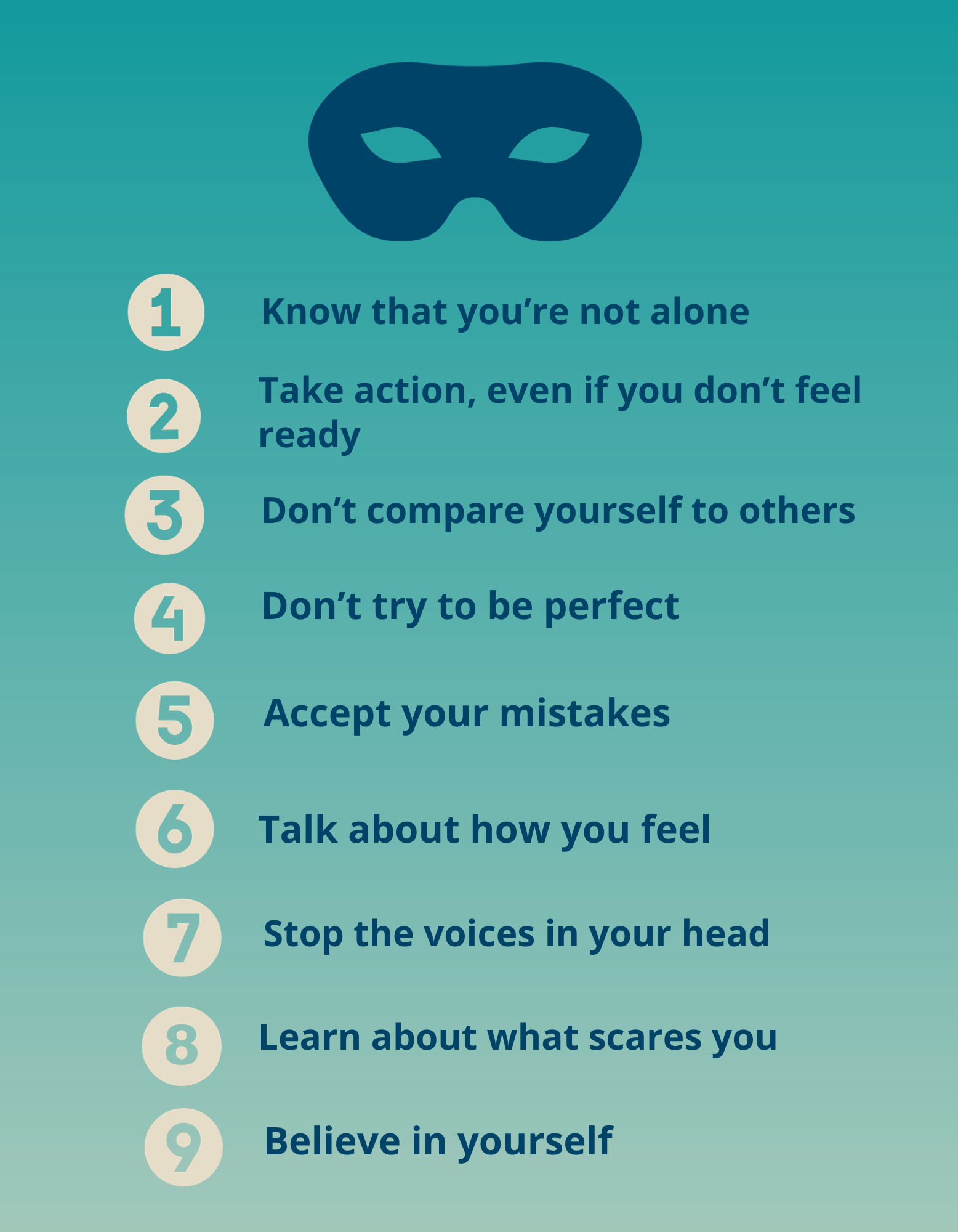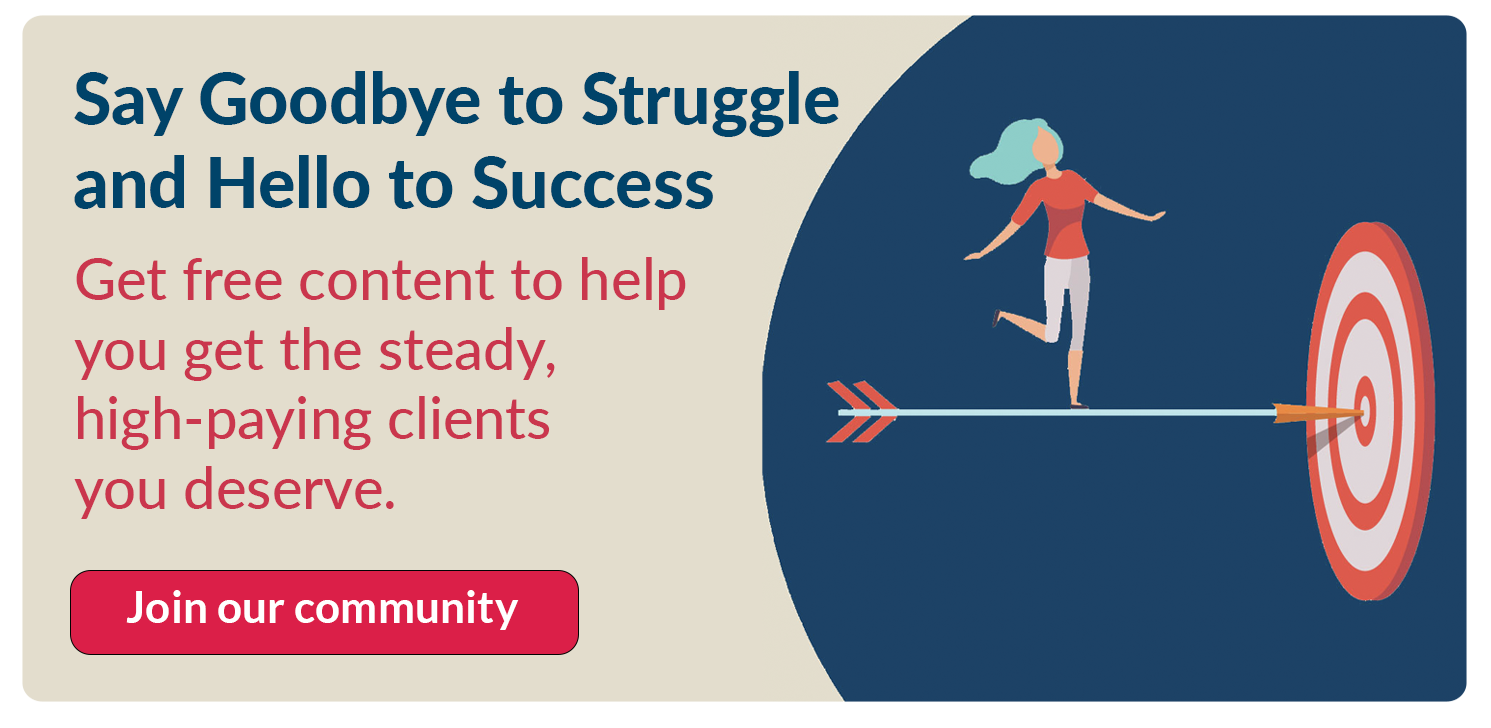Do You Feel Like an Imposter? Here’s the Cure
 If you feel like a fraud, and worry that soon everyone will know that you’re not good enough, you’re in good company. John Steinbeck, Jodie Foster, Sheryl Sandberg, Tom Hanks—and many freelancers—have all felt like imposters. There’s even a name for this: Imposter syndrome. Here are 9 ways to cure imposter syndrome.
If you feel like a fraud, and worry that soon everyone will know that you’re not good enough, you’re in good company. John Steinbeck, Jodie Foster, Sheryl Sandberg, Tom Hanks—and many freelancers—have all felt like imposters. There’s even a name for this: Imposter syndrome. Here are 9 ways to cure imposter syndrome.
Steinbeck, a Pulitzer Prize-winning author, wrote in his diary that he wasn’t a writer, and that:
“I’ve been fooling myself and other people. I always feel like something of an impostor.”
When actress Jodie Foster won a Best Actress Oscar for her portrayal of Clarice Starling in The Silence of the Lambs, she called it a fluke:
“I thought everybody would find out, and they’d take it back. They’d come to my house, knocking on the door, ‘Excuse me, we meant to give that to someone else,’” she said.
Actor Tom Hanks and Facebook Chief Operating Officer Sheryl Sandberg have both admitted to imposter syndrome. Hanks said:
“No matter what we’ve done, there comes a point where you think, ‘How did I get here? When are they going to discover that I am, in fact, a fraud and take everything away from me?’”
Adds Sandberg:
“There are still days when I wake up feeling like a fraud, not sure I should be where I am.”
Most of us Feel Like Imposters
Smart, successful people like Steinbeck, Foster, Hanks, and Sandberg—and most freelancers—have imposter syndrome.
Most experts say that up to 70% of all people have faced imposter syndrome at one time or another. Best-selling author Seth Godin says the percentage is much higher than that. “Yes, you’re an impostor. So am I and so is everyone else. Superman still lives on Krypton and the rest of us are just doing our best,” he says.
Imposter syndrome is a feeling of severe self-doubt and insecurity that doesn’t go away. People with imposter syndrome feel like frauds—even though they’re already successful, or have what it takes to be successful. They feel like they don’t deserve the success that they’ve worked hard to achieve or that they aren’t good enough to try.
Psychologists Pauline Clance and Suzanne Imes discovered imposter syndrome back in 1978. But most people didn’t know about it until the last few years, when it became a hot topic in the business world.
Diagnosis: Imposter Syndrome
Over the years, I’ve coached hundreds of freelancers. Most of them lacked confidence in their ability to succeed in freelancing.
But when I learned about their background and experience, and talked with them, they usually already had most of they needed to succeed. And they always had more going for them than they thought they did.
What they needed was to believe in themselves and to learn how to build a stable, successful freelance business. Learning about marketing was the easy part.
They needed a cure for imposter syndrome, which was sapping their confidence.
The Cure for Imposter Syndrome
If famous people like Steinbeck, Foster, Hanks, Sandberg, and Godin have succeeded despite imposter syndrome, so can you.

1. Know that You’re Not Alone.
All freelancers have experienced doubt and insecurity. And at one time or another, most successful freelancers have faced imposter syndrome.
Knowing that you’re not alone should make you feel better. Knowing that very successful people have succeeded despite imposter syndrome should give you hope that you can too.
2. Take Action, Even if You Don’t Feel Ready.
Imposter syndrome won’t go away unless you take action. Getting started is the hardest part. Once you do, it will be easier to keep going.
Set a reasonable goal, break this down into mini-goals, and develop a plan with actions to achieve your goal and mini goal.
Start small with easy task that will give you quick wins. For example:
- Update your LinkedIn profile
- Research 10 prospects
- Join a professional association
- Network with 2 freelance colleagues.
As you check off each completed action, you’ll start to believe that you can succeed in freelancing.
3. Don’t Compare Yourself to Others.
When you compare yourself to other freelancers, you focus on what they have that you don’t. This will only make you feel worse.
Learn things that can help you build your business from other freelancers. But don’t worry if they seem to be more successful than you are. Most of the time, you don’t know the struggles the other freelancers faced in getting to where they are today.
4. Don’t Try to Be Perfect.
Freelance success requires talent and competence, not perfection. Striving to be perfect only sets you up for failure and robs you of the time you need to do the things that will actually help you succeed.
5. Accept Your Mistakes.
We all make mistakes. Forgive yourself. Learn from your mistakes and do better the next time.
6. Talk About How You Feel.
Like knowing that you’re not alone, talking about how you’re feeling really helps.
Talk to other freelancers, who know what you’re going through. Having a few freelance friends you can talk to about imposter syndrome or anything else related to your business is a key benefit of networking. You can also talk to other friends and family members.
7. Stop the Voices in Your Head.
Negative self-talk saps your confidence. Stifle your inner critic and think positive.
Most freelancers face the same or similar challenges. And learning new things, while sometimes scary, makes freelancing fun.
Say this:
“This is just one of those things that happen to most freelancers occasionally.”
Not that:
“Why does this always happen to me?”
Say this:
“This project is a great chance to learn new skills.”
Not that:
“I’ve never done this before. How am I ever going to do this?”
8. Learn About What Scares You.
If you feel like a fraud because you don’t know how to do something, then learn how to do it. Knowledge is power. When you understand something, it’s not as scary. And it’s easier to do.
9. Believe in Yourself.
Accept whatever you’ve achieved so far and know that you are good enough to succeed in freelancing.
You’ve probably achieved more than you think you have. Be proud of what you’ve achieved so far, because you’ve worked hard and deserve the good things that “happen” to you.
Know that you have the power, skills, and confidence to cure your imposter syndrome and succeed in freelancing.

Learn More About Imposter Syndrome
From The Mighty Marketer
The Ultimate Guide to Goals for Freelancers
4 Ways to Become a More Positive Thinker
7 Ways to Boost Your Confidence as a Freelancer
Other Resources
12 Leaders, Entrepreneurs and Celebrities Who Have Struggled With Imposter Syndrome
Is imposter syndrome a sign of greatness?
Ed Gandia, “Do You Feel Like a Fraud? Struggle With Self Confidence? Welcome to the Club!”
Carol Tice, “Imposter Syndrome: Fighting Self-Doubt as a Freelance Writer”
Seth Godin, “Impostor syndrome”